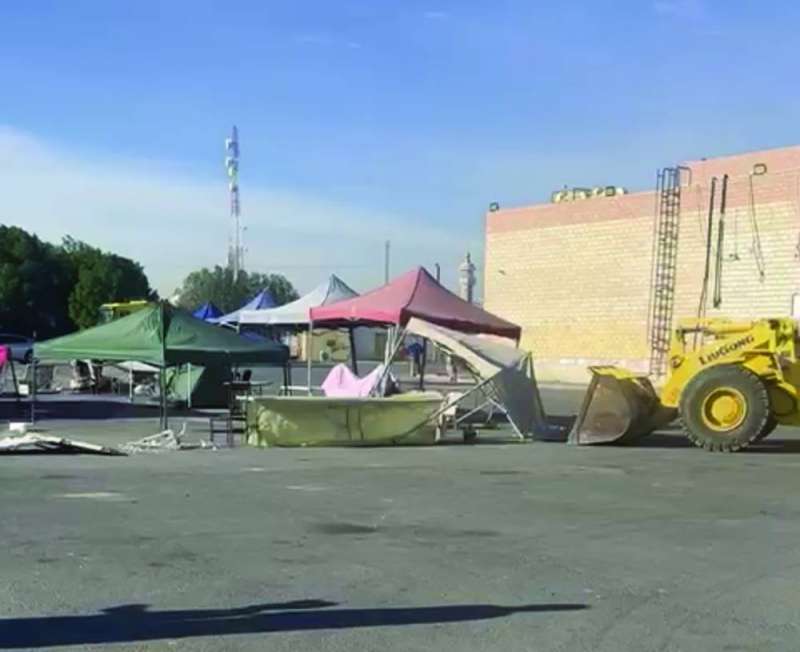Yesterday morning, the Kuwait Municipal bulldozers tore down the agricultural products market situated adjacent to the Abdali Cooperative Society. The incident has sparked a heated debate between the municipality and the market’s supervisor, shedding light on the complex issues surrounding the market’s existence.
An official from the municipality, speaking to Al-Rai, revealed that the market stalls were situated on state-owned land and were operating without an official license. The municipality also discovered that many of the workers were unemployed and some were in violation of residency regulations. These findings prompted the decision to demolish the market.
The source further explained that a significant portion of the goods sold in the market were imported, raising concerns about the market’s impact on local farmers and the economy. In response to these concerns, a stern warning was issued, cautioning against any attempts to revive the market, with the threat of legal consequences.
Contradicting the municipality’s claims, Ahmed Al-Arada, the supervisor of the market, informed Al-Rai that the market had been under the Abdali Farmers Association’s supervision for seven years. Its purpose was to showcase Kuwaiti farm products at competitive prices, with approval from The Public Authority for Agriculture Affairs and Fisheries Resources (PAAAFR).
Al-Arada emphasized that the municipal bulldozers removed the stalls abruptly, without any prior notice, leaving the market’s stakeholders shocked and confused. He refuted claims that the market’s proximity to a mosque or its establishment on the air ambulance landing strip led to its removal. He stressed that the market had been in its current location for seven years, far from the mentioned areas. He clarified that the construction near them pertained to a hall affiliated with the Kuwaiti Farmers Union.
The controversy surrounding the demolition highlights the need for greater clarity and communication between the municipality and the market’s stakeholders. It is crucial to address the concerns raised by the municipality regarding the market’s compliance with licensing and employment regulations.
However, it is equally important to consider the market’s positive contributions to the local economy and the livelihoods of small-scale farmers. The market provided a platform for them to showcase their products and compete with imported goods. It also served as a valuable resource for consumers seeking fresh and locally produced agricultural products.
To prevent similar conflicts in the future, it is essential for the municipality and market supervisors to engage in open dialogue and find a mutually beneficial solution. This could involve regularizing the market’s operations by obtaining the necessary licenses and ensuring compliance with employment and residency regulations.
Furthermore, the municipality should consider supporting and promoting local farmers by creating more opportunities for them to sell their products. This could include providing designated spaces or organizing regular farmers’ markets, where both farmers and consumers can benefit.
Ultimately, the demolition of the agricultural products market in Kuwait has brought attention to the challenges faced by small-scale farmers and the need for a balanced approach that considers both regulatory compliance and the economic sustainability of local agriculture. By working together, the municipality, market supervisors, and farmers can find common ground and create a thriving agricultural sector that benefits all stakeholders.
Source: TimesKuwait







